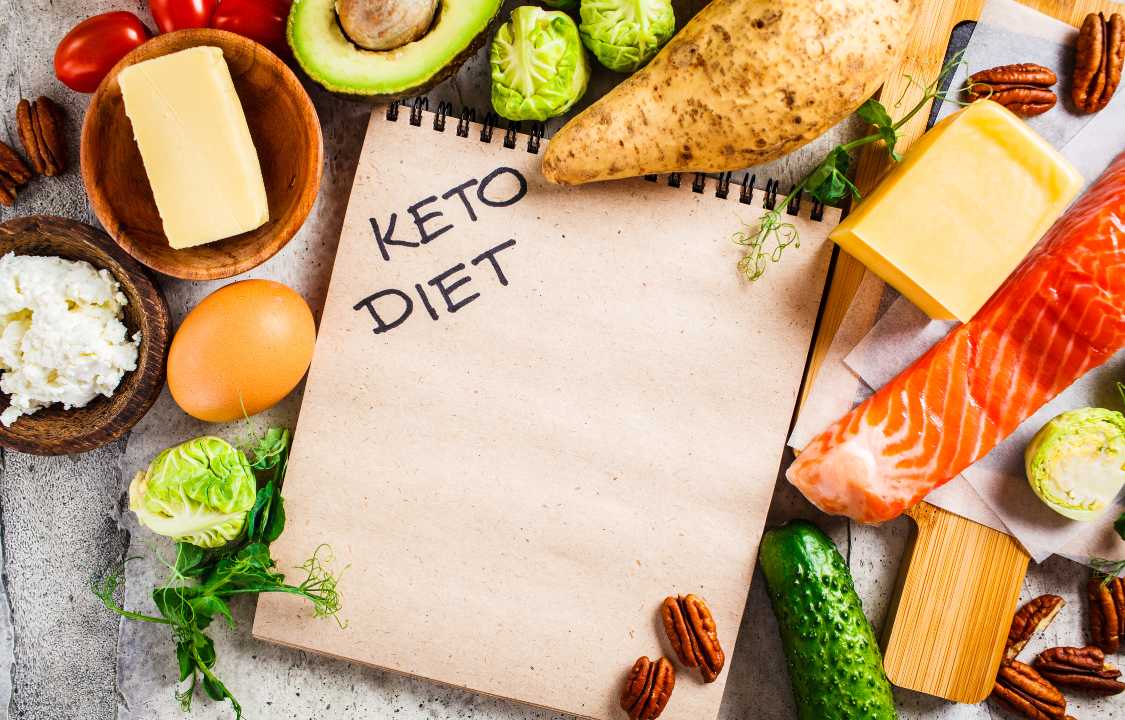Health Benefits, Health Care
Keto Diet May Help Weight Loss and Fertility Levels in People With PCOS
New research has shed light on the potential benefits of a ketogenic diet for women dealing with polycystic ovarian syndrome (PCOS), offering hope in the form of weight loss and enhanced fertility. It’s important to note, however, that not all experts recommend such a dietary shift, emphasizing the need for caution and consultation with healthcare professionals before embarking on significant dietary changes.
The ketogenic diet has gained significant popularity for its effectiveness in promoting general weight loss. Beyond its weight management advantages, this low-carbohydrate lifestyle has also demonstrated benefits for individuals dealing with diabetes and various endocrine disorders. The most recent focus of research has been on the potential advantages of the keto diet for women with PCOS.
A recent study published in the Journal of the Endocrine Society has suggested that adopting a high-fat, low-carb ketogenic diet could potentially bring about positive changes in weight management and fertility for women with PCOS. PCOS is the most prevalent hormonal disorder affecting women, impacting around 8-13% of women of reproductive age.
The research findings indicate that women who followed a ketogenic diet for a minimum of 45 days not only experienced significant weight loss but also saw improvements in their reproductive hormone levels. Their follicle-stimulating hormone (FSH) to luteinizing hormone (LH) ratio improved, increasing their chances of ovulating and, consequently, conceiving.
One of the primary reasons behind these positive effects appears to be the ketogenic diet’s ability to stabilize blood sugar levels, a pivotal factor in PCOS diagnoses. Dr. Rekha Kumar, Chief Medical Officer at Found, a medically-assisted weight loss program, and practicing endocrinologist in New York City, notes, “Low-carb diets for PCOS don’t have to be as extreme as keto, but any form of carbohydrate reduction…will lower insulin levels, if that nutritional approach can be adhered to long-term.”
Lowering insulin levels can lead to more normal ovarian function, potentially restoring menstruation and ovulation, though it’s not always a straightforward process. The reduction in testosterone levels resulting from the diet may also alleviate PCOS symptoms, including acne, unwanted hair growth, and absent menstruation. These improvements are significant, given that insulin resistance, which affects 95% of women who do not ovulate, is a key factor in infertility among PCOS patients.
However, it’s essential to note that the definition of a ketogenic diet can vary widely, and this variance can impact its effectiveness in reducing PCOS symptoms. Instead of specifying exact carbohydrate or fat intake levels, the researchers included studies that used the keywords “ketogenic diet” or “very low-carbohydrate diet.” Therefore, the precise carbohydrate intake of the subjects remains unclear.
While the research shows promise in terms of improving the health of women with PCOS, adhering to a ketogenic diet can be challenging, especially for those with insulin resistance and high insulin levels. This resistance and elevated insulin levels can make a low-carb or keto diet seem contrary to one’s biological or hormonal milieu. Additionally, individuals with PCOS may have strong cravings for carbohydrates, which can make diet adherence even more challenging.
Given the ongoing debate surrounding the keto diet, it is essential to consult with a healthcare provider before making any significant dietary changes, particularly for women with PCOS. McKenzie Caldwell, a fertility and prenatal dietitian, suggests that the benefits of the keto diet for PCOS symptom management are not substantial enough to recommend it as a primary dietary strategy. She points out that while keto may help manage blood glucose levels in the short term, its long-term benefits remain unproven.
Caldwell encourages individuals to assess their overall health and consider factors such as disordered eating history and family history of heart disease before deciding to adopt a keto diet. Additionally, even on a low-carb diet, it is crucial to prioritize sources of fiber-rich carbohydrates for digestive and heart health, as well as for the provision of essential vitamins, minerals, and antioxidants.
Ultimately, when considering the best dietary approach for individuals grappling with Polycystic Ovary Syndrome (PCOS), it becomes imperative to strike a harmonious balance between a comprehensive ketogenic diet and the conventional Western dietary patterns. Opting for a well-rounded approach that seamlessly blends together fiber, protein, healthy fats, and carbohydrates can serve as a catalyst for promoting not only optimal nutrition but also adept blood sugar management and hormone equilibrium for those contending with the challenges of PCOS.
It is essential to underscore that each individual’s PCOS experience is inherently unique and multifaceted. Consequently, it becomes paramount to collaborate closely with experienced healthcare professionals who possess the expertise to decipher and prescribe the most appropriate and personalized dietary strategy for effectively managing the diverse spectrum of PCOS symptoms. This partnership can empower individuals to navigate their PCOS journey with confidence, embracing a dietary regimen that genuinely suits their individual needs and health goals.

